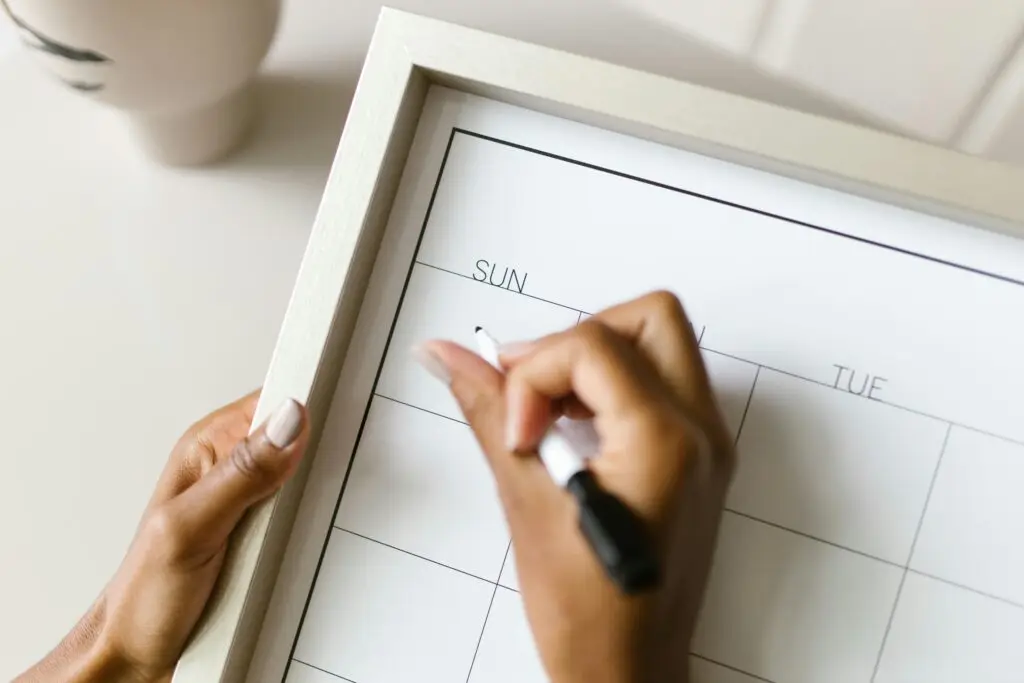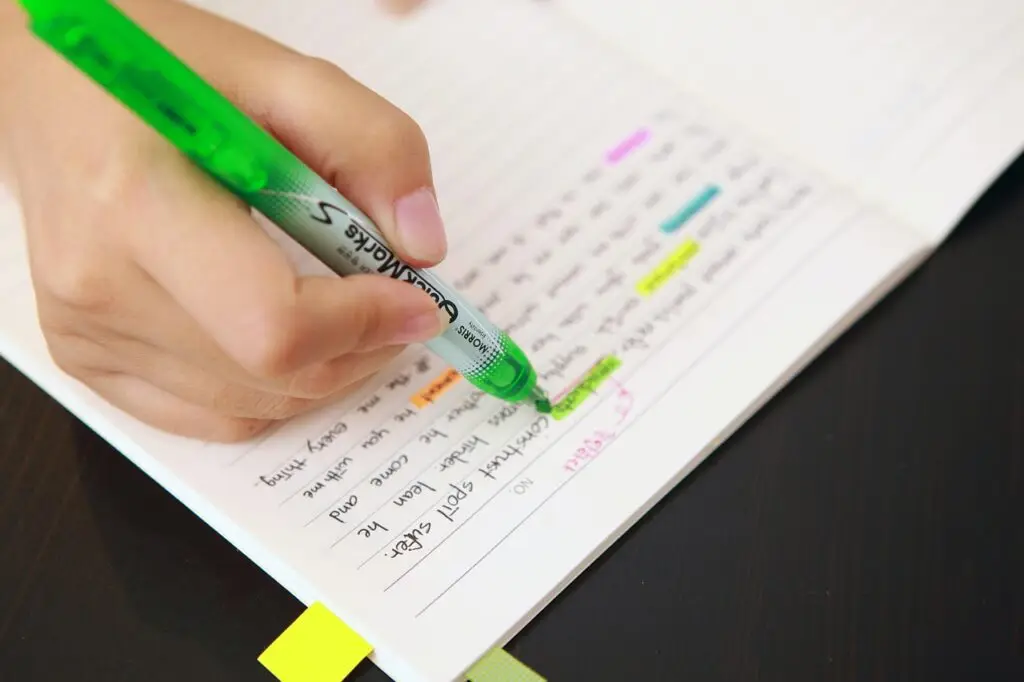🏁 Why I’m Sharing This
Let’s be real. We’ve all been there — staring at an exam schedule that somehow crams 3 to 5 exams into a single week. You didn’t choose this chaos. It just happened. And now, here you are… stuck, stressed, and already wondering if it’s even possible to survive with your GPA and sanity intact.
I had 5 exams in 7 days. And my goal wasn’t just to scrape by — I wanted to do well and not burn out in the process.
Now, when that kind of schedule hits you, the first reaction is usually panic. You know you’ll probably procrastinate until the last minute (because… same). Some of you might start prepping a week ahead, but let’s be honest — most of us don’t. And even if we do, it’s usually just scattered chaos.
After dealing with this situation more than a few times, I’ve built a system that helps me just about survive it. It’s not magic, it’s not guru advice — it’s just what worked for me. Maybe it’ll work for you too. Here’s a calm (mostly) survival strategy for academic chaos, brain fog, and the looming fear of failure.
📅 The Week Before — What I Did Right (and Wrong)
Let’s talk about the week before the storm.
Now, a lot of us wait until the very last second to study — because only then do our survival instincts finally kick in. But this part is for the slightly more responsible among us: the ones who try to prep about a week in advance.
If your exams are in the next couple of days, feel free to skip ahead to The Study Framework That Saved Me.
If you’ve read any of my previous posts, you know I’m a big fan of active recall, spaced repetition, and deep work. These tools usually help me study smarter, not harder.
But I didn’t always have this system figured out.
Here’s what I used to do:
- I’d slowly work through all the topics for each subject.
- Then I’d do some practice papers.
- I’d review old quizzes and see what the instructor said to focus on.
Now, this isn’t the greatest way to study, but if you haven’t figured out the best framework for studying for yourself, then this won’t be the worst method — and it got me decent grades — but it was slow, time-consuming, and often stressful. I used to make quick overview sheets for each course just to get my brain moving. It helped a little — like a warm-up before a workout.
What went wrong:
- It was too time-intensive. Think about it, you’re covering each topic one by one for each subject, and then actually getting down to do the practice stuff.
- I constantly got distracted (hello phone, fridge, and doom-scrolling).
- I’d cram chapters the night before and forget half of them.
Pro Tip 🧩
If you’re short on time, skip the full content review and jump straight into practice questions. You’ll learn the topics as you go. It forces your brain to figure things out faster, and it filters out the fluff that probably won’t show up in the exam anyway.
🧠 The Study Framework That Saved Me
This part is for when you have very little time left. Maybe just a few days. Here’s the 3-part framework that helped me pull through:
1️⃣ Time Block Your Days
Block out your time in advance — even if it’s just for general study. Don’t worry yet about assigning time to specific subjects. The point is to get a visual of how many actual hours you have.
Whether you use Google Calendar, Notion, or a sticky note — write it down and stick to it.
2️⃣ Divide Subjects by Load: Light vs Heavy
You don’t have enough time (or brainpower) to give every course the same attention.
So do this:
- Heavy Load = Hard topics, weak areas, or large syllabi
- Light Load = Easy reviews, familiar content
Then, place your heavy load sessions during your most focused time of day (for me, that’s morning), and the lighter stuff when you’re more drained (for me, post-lunch).
🧠 Pro Tip: Don’t schedule heavy-load sessions back-to-back. One or two a day is enough — otherwise, you’ll mentally crash.
My Day Broken Into 4 Parts:
| Time of Day | Task |
| Morning | Course 1 (Heavy) |
| Afternoon | Course 2 (Light) |
| Evening | Course 3 (Flashcards or past papers) |
| Night | Night routine or extremely light review |

3️⃣ Plug in Energy Anchors
You’ll burn out if you don’t recharge.
I don’t do coffee or energy drinks. Instead, I take:
- 🌳 A quick nature walk
- 💬 A chat with a friend
- 😴 A power nap if I’m feeling cooked
Find your own mental reset button and use it — just don’t overdo it and derail your study flow.
🔄 How I Reviewed Everything in One Week (Without Melting Down)
So… how do you actually review everything in just 7 days? I have figured out the study techniques that work best for me, and I highly suggest that you also figure it out for yourself. But right now, you need a quick solution. I will share what works for me and how you can use it for yourself.
These 4 methods worked for me:
🔁 1. Active Recall
After learning a topic, don’t just reread your notes. Close the book and try to recall what you just learned. Quiz yourself. Test yourself. Redo a problem from memory.
Especially useful for theory-heavy subjects — like law, psych, or management.
“I ain’t got time for that!”
Then do it only for the key topics — the ones you have to remember.
🧠 2. (Mini) Spaced Repetition
Yes, the OG spaced repetition takes weeks. But we don’t have that.
So I do a “mini spaced version”:
- Review the same content again after 2 hours
- Then again after 6–12 hours
- Maybe again the next day
This works great with active recall. You strengthen your memory every time you come back.
It is almost like a 2-for-1 deal, where you combine both techniques into one.
🧑🏫 3. Teach-Back Method
If you can’t explain it simply, you haven’t learned it properly. Even a quick 5-10 minute teaching session can help a lot.
So I try to explain it to:
- My friend who doesn’t take the class
- My younger sibling
- The wall. Yes, even the wall.
I explained tax flows to my friend who barely passed math, and somehow, I ended up understanding it better.
📝 4. One-Page Summary (Optional)
Once I’ve studied enough, I make a one-pager of the course or topic. Just to check if I’ve really nailed it.
Does it take time? A little.
Does it clarify everything in my brain? A lot.
Pro Tip 🔑
If you’re really short on time, don’t try to learn everything.
Focus on what you can’t afford to forget.
📈 Prioritization = Sanity
Ever heard of the 80/20 Rule?
In this case, 20% of the material = 80% of the exam. Focus on that.
How?
- Review lecture slides, prof hints, past papers
- Focus on core concepts — the building blocks
- Skip over tiny one-off details unless they’ve come up multiple times
A simple concept of diminishing returns can be applied here. The more time you spend on less important content, the less value you get back.
Don’t spend 3 hours perfecting one diagram when you could review 4 major chapters instead.
🚫 What I Stopped Doing That Helped Me the Most
People enjoy and love what not to do. There are so many things that give us the illusion of learning — they feel productive because we’re putting in visible effort. It looks like work, it feels like work, but in reality, it’s not helping us actually learn or retain anything. Its just busywork disguised as progress.
For example, when you first try spaced repetition, it honestly doesn’t feel like it’s working. You might think you’re wasting time or not learning anything at all. That’s because, unlike writing notes, there’s nothing visibly happening — no immediate result you can point to. But when you sit down for that exam and the answers just click, that’s when it hits you: the technique worked. You just couldn’t see it in the moment.
Here’s what I stopped doing — and my grades thanked me for it.
❌ Multitasking
Trying to revise multiple courses at once? Total brain fry.
Focus on one subject at a time — deep work wins.
❌ Rewriting Notes
Copy-pasting from slides isn’t studying. It’s just busywork.
Take real notes only when:
- The instructor says something not on the slides
- You want to rephrase something in your own words
Aesthetic or pretty notes ≠ smart brain.

❌ Endless “How to Study” Content
Reading 10 blog posts and watching 6 YouTube videos on productivity won’t help — unless you apply it.
If you’re reading this post and already know most of what I’m saying… just stop reading and go study.
Don’t just prepare to study. Actually study.
The only real way to be productive — or to actually get anything done — is by just DOING the thing. No hacks, no fluff. Just action.
🍽️ My Sleep, Food, and Mini-Burnout Protocol
Let’s talk about the non-academic survival kit.
😴 Sleep
If you’re behind on study time, you might have to cut back a little.
But don’t go below 6 hours. Less than that = zombie mode.
6.5 to 7 hours? Fine. 4 hours? That’s a trap.
🥗 Food
Cooking a full meal every day? Nah.
Here’s what I went for:
- Instant noodles (not proud, but it worked)
- Rice + frozen veggies + pre-cooked protein
- Protein shakes (super quick + high macro)
- Protein bars (emergency snack fuel)
Meal prep if you can. If not, just make it functional.
💆 Breaks
Every 120–180 minutes, I took a screen break.
Options:
- Walk around the block
- Yoga
- Light cooking
- Talk to a friend
Burnout is real. Rest is productive.
The Rule:
Don’t aim for perfect. Aim for functional.
Sleep > Studying after midnight.
📚 Adapting for Each Subject
Study strategies aren’t one-size-fits-all.
Here’s how I tweaked things:
- Taxation → I made a “Tax Flow Structure”
- Computer Science → Past paper coding saved me
- Law → I used “trigger words” to memorize legal principles
Adjust based on what each subject needs. Don’t be rigid.
🛠️ Tools I Used
Here are the tools that helped me stay sane:
- 🧠 Notion — All my plans, notes, and task tracking
- ⏱️ Pomofocus — 45/5 minute study intervals
- 🌳 Forest App / LockMeOut — Phone blocker + focus app
- 🧾 Anki/Quizlet — Flashcards for spaced recall (Anki’s my go-to)
- 🤖 ChatGPT — Used it to check my understanding, not to copy answers
→ Check out my blog post on using ChatGPT effectively
🧨 The Low Point (and How I Got Through It)
I had a moment where I was certain I’d fail.
But I stopped and asked myself:
“What’s the worst that happens?”
Repeat the course?
Deal with disappointed parents?
Feel embarrassed?
…Sure. But I’ll survive.
I reminded myself: You will not die from this.
That mindset shift alone calmed me down.
This little system helps you rationalize your feelings and fears. And trust me, it helps a lot.

I’ve had moments that quite literally saved me, like a friend randomly reminding me about a major topic I had completely missed, which ended up being a huge part of the exam. Or a last-minute power nap that gave me just enough energy to reset my brain and push through. Sometimes, it’s those small things that make the biggest difference.
Have faith in yourself and push through the challenges.
✅ Exam Days — How I Managed My Brain
My golden rule:
No study 2 hours before the exam.
Just rest, calm down, and let your brain settle.
After each exam, I took an hour or two off — got food, laughed with friends, recharged.
Then, back to focus. Next exam mode: ON.
If I had 2 or 3 exams in a single day:
- Got water + quick snack between them
- Avoided exam debrief convos (they mess you up)
- Stayed focused on what’s next, not what’s done
💬 Final Takeaways
There’s no shortcut.
You have to:
- Plan
- Focus
- Let go of perfection
- Use your energy wisely
But it’s not about acing everything. It’s about getting through it.
Systems > Panic
Breaks > Burnout
Progress > Perfection
🎓 TL;DR Lessons:
- Don’t try to learn everything.
- Systems beat last-minute panic.
- Take breaks — your brain is not Google.
- You’re doing better than you think.
PS – If you’re dealing with your own exam overload and need someone to vent to or want to swap survival tips — feel free to reach out or subscribe to my monthly reflections 💌.

